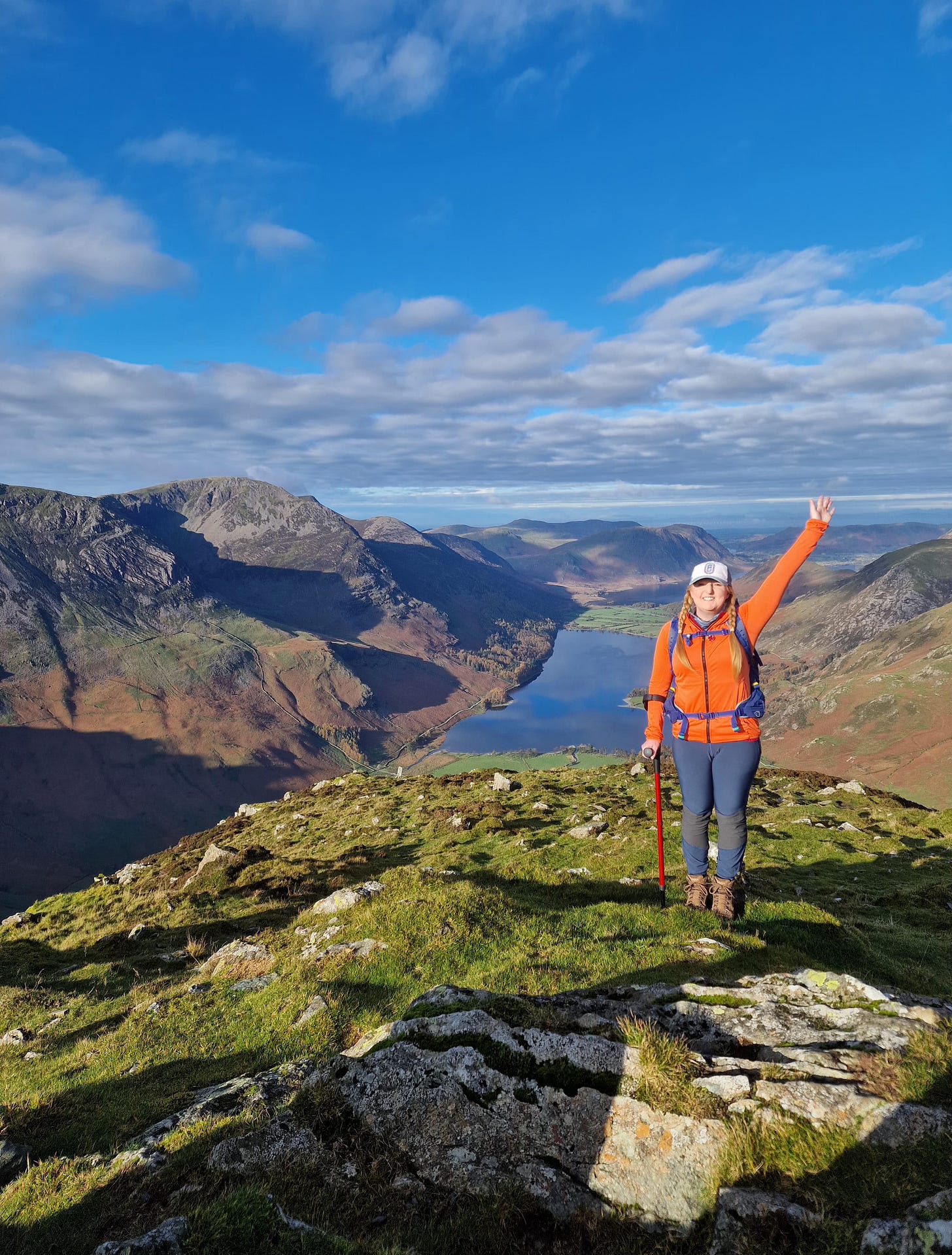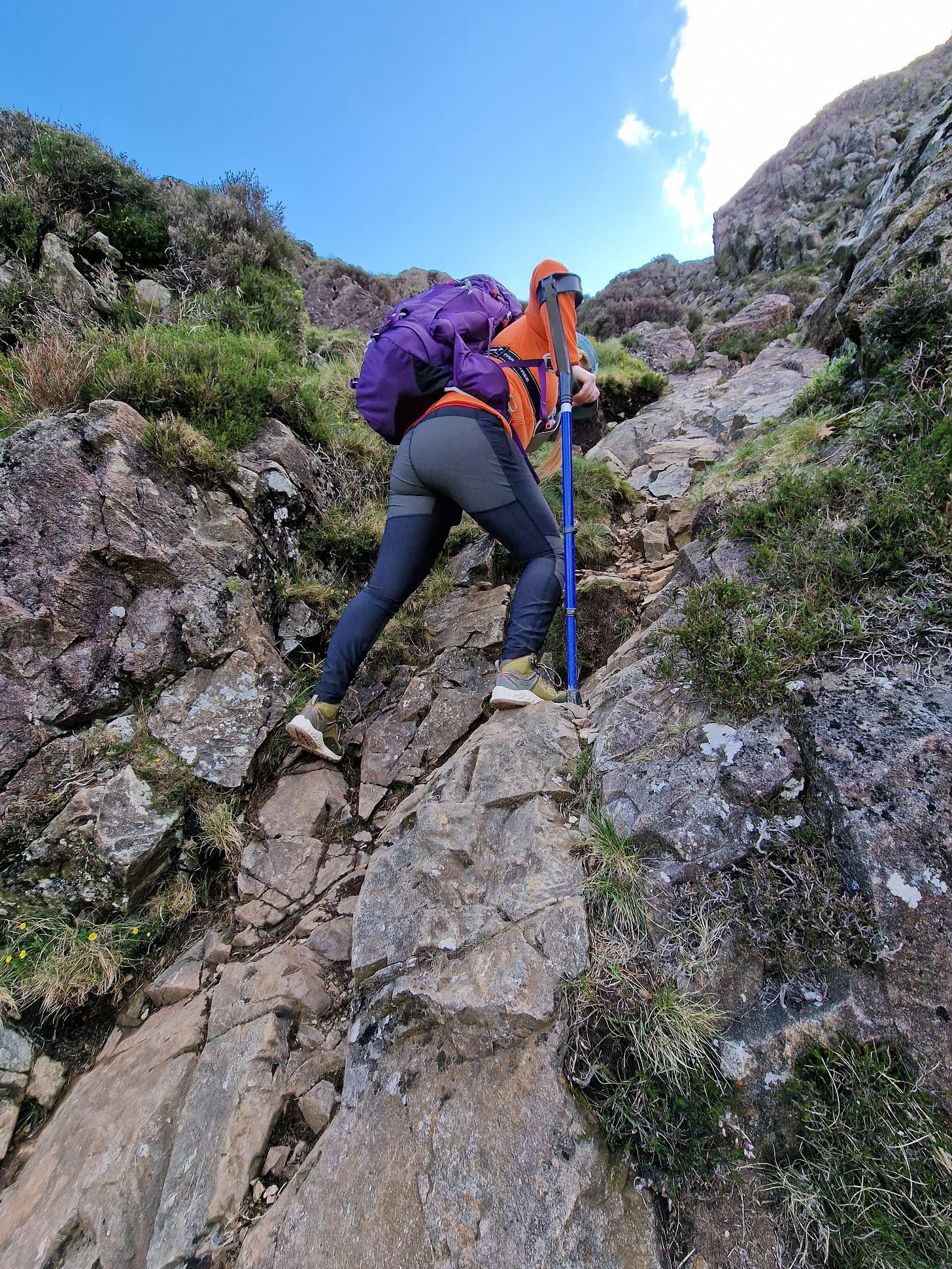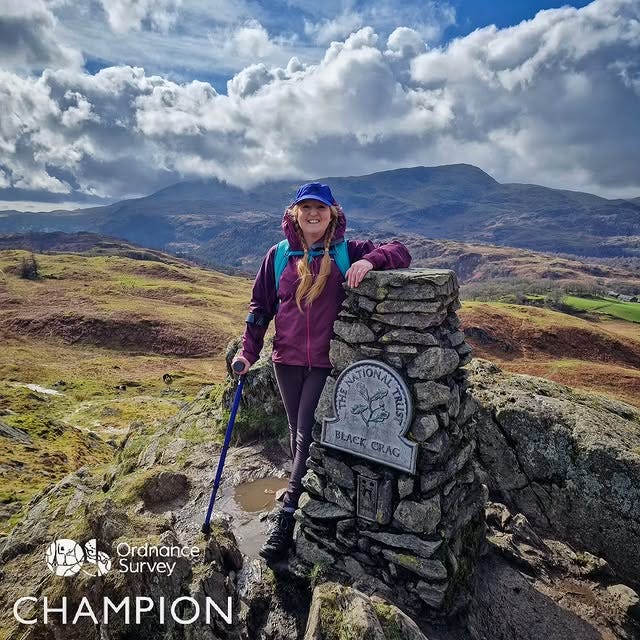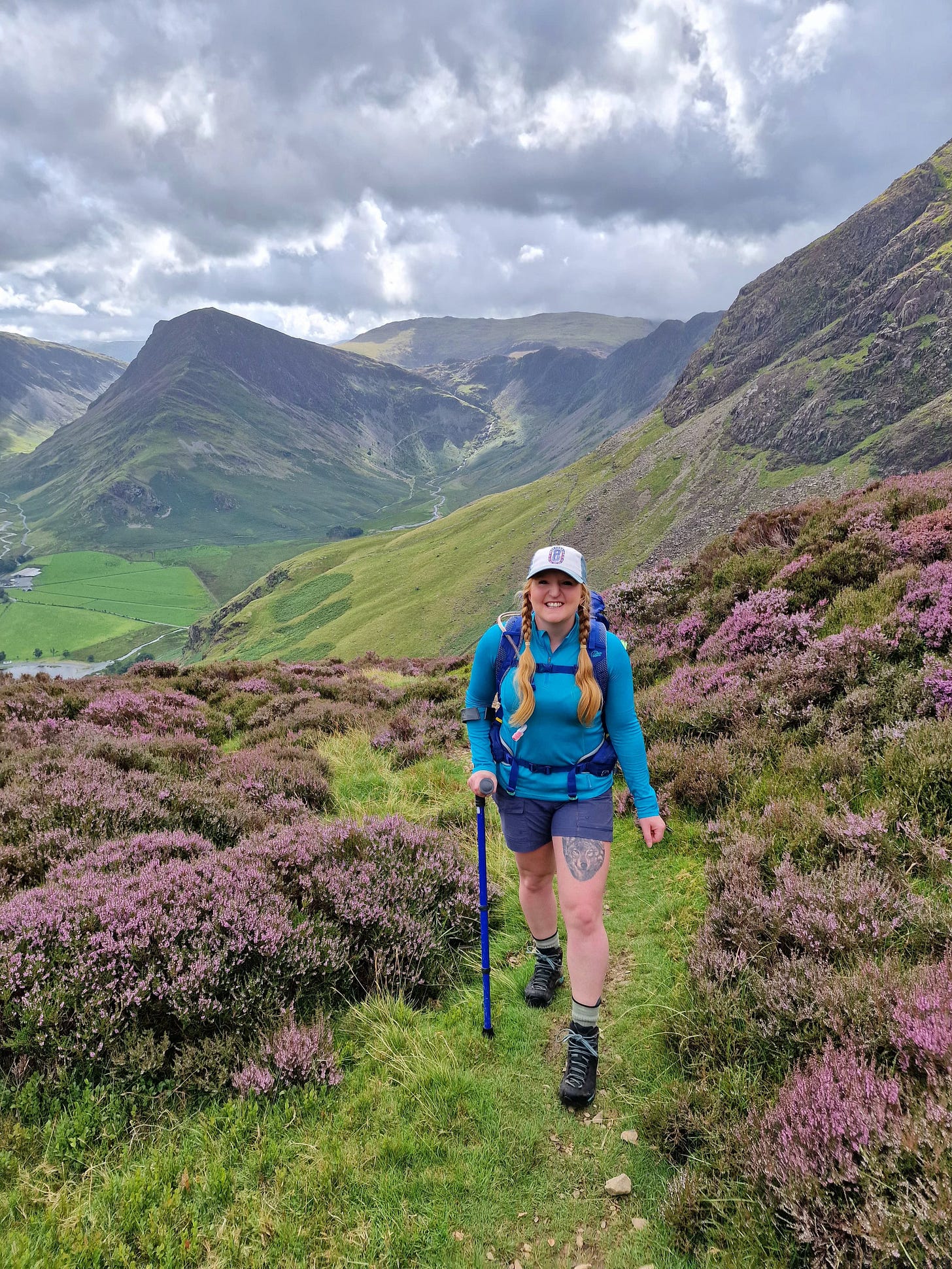Lake District fells 'make me feel strong again': Sarah Curran’s Seven Summit Challenge
Why Sarah Curran, a disabled hiker, is walking almost 60 miles in 48 hours
In the hiking and outdoor adventure world, there’s a long list of devised routes and hill bagging challenges on offer that are on many people’s bucket lists. Some are well-known and considered iconic, like the Wainwrights, and others are lesser-known, like Synges and Ethels, but there’s nothing like taking some inspiration and creating your own challenge.
In mid-June, Sarah Curran will hike almost 60 miles, covering 17,000ft across the seven highest summits in Alfred Wainwright’s seven pictorial guides within 48 hours.
The night before we met in Ambleside for our interview in spring, she walked a route from her Keswick home summitting Catbells twice, “just because.”
“I try and get up as much as possible because I know how good it is for me with nothing on my mind. When I'm walking up a fell, I can just completely push my pain to one side.
“In that moment, all I'm thinking about is just putting one foot in front of the other. And it's also sort of like a distraction, I guess. It just completely takes me away, and I'm just completely free.”
The pain Sarah references is the root of her disability, an osteochondral defect, caused by an injury she sustained in 2015 when she rolled her ankle during the bleep test for her RAF training.
What was initially thought to be ligament damage turned into more serious, lasting damage, and after nearly 10 years, multiple surgeries, injections, and intensive rehab, there’s no more treatment available.
“So basically, there's a hole in my talus bone, and I damaged all the cartilage. They’ve recently found arthritis in the ankle as well in a separate joint. So [I] just deal with daily pain, use the crutch to get about, which is for pain relief and a little bit of stability as well. I have done everything I can over the last nine years to strengthen everything around the ankle,” she says.
Sarah has good and bad days with the pain. Good days are an ache, but bad days involve medication like tramadol and co-codamol for pain relief.
“There are days when it's worse, and there are days when I don't leave the flat. But I'd say they are few and far between now, and I don't let the pain sort of get on top of me.
“There's no sugar coating it. Being in chronic pain isn't great. But it's just knowing how to best manage it,” she says.
Sarah has lived in Cumbria since 2021 with her husband Leigh. She has completed many well-known routes, including the Cumbria Way, George Fisher’s Tea Round, the Wainwrights in 175 days, a 50km event, and in 2024 she hiked 2,400 miles (including 318,000ft of elevation).
This year’s challenge is the latest goal to push herself “a little bit further.
“I'm always just looking for the next step,” she says. “I don't think I'll ever get to the point where I can hike 60 miles [at once]. So I thought, what can I do that's maybe like a multi-day thing that's like a little bit… [different]. And then I thought, what can I do that nobody's ever done before?”
“I'm just Sarah, who is hiking mountains on a crutch. It's amazing and it just makes me really happy.”
From running to hiking
Previously, Sarah was a runner, and more specifically, a sprinter, representing her home region of Merseyside. But after the injury, she was told she would never run again and was medically discharged from the RAF.
“That was really hard because it was all I ever did,” she says. “Unfortunately, I only ever got to sort of 10km distance, but I see what could have been. My husband [Leigh] is there running 50kms, and it's like, I could be running 50kms with him, but it's fine. I'll just hike them instead.
“When the injury happened, I was very depressed. I put on a lot of weight because I wasn't being active [with] the pain. And then in 2017, I came on holiday to the Lakes, and my mum and dad got me up Loughrigg on two crutches. That's what sparked the idea that maybe I could hike instead of run and put everything into that instead.”
Walking in the fells is one way she manages the chronic pain – her ‘natural pain reliever’ as she’s referred to it in other interviews. “It makes me feel strong again,” she says.
“It just makes me feel powerful, strong, because obviously my ankle isn't as strong or powerful as it could be. But being up there, it's like there's nothing wrong, you know what I mean?
“I'm just Sarah who is hiking mountains on a crutch. It's amazing and it just makes me really, happy.”
I got to know Sarah through Instagram, where she uses her platform to inspire others to be active and enjoy the outdoors. “I just want to normalise seeing people on the top of Scafell Pike or whatever with a crutch in their hand, and it just be in the norm, you know? But it's getting other people to believe in themselves a little bit more, push themselves and get themselves up the mountains.
“If I can do it, they can do it,” she says.
I mentioned that although social media and reality are different, her warmth and optimism from her posts shine through.
“I am a really optimistic person,” she says. “And I try and put a positive spin on everything. We all have bad days and there are days when my ankle does get the better of me. I know what to do on those days, I know that I'll just stay at home. I'll put my favourite film on and the next day is the new day, isn't it?
“On the whole, I am quite a positive person, but I am quite real on Instagram as well. So not all of my stories will be positive. I try and I try and keep a bit of realism in there, because it can just be a highlight reel and it is, it is for the majority of people.
“You want to show the good stuff. But I don't shy away from showing the bad stuff either.”
Through her social media posts, Sarah’s mission is to show “how strong and talented” disabled people are, and try and break down preconceptions. In doing so, she represents Ordnance Survey and SheRaces, the female-only trail running series, which is new for 2025. The races have no cut-off times, which is important to encourage runners of all speeds and hikers to events to complete the varying distances.
"I'm trying to just get the word out there, and show people what I can do and stuff and inspire others,” she says. “I have been put off so many races where I'll look at the cutoff and I'm like, I could, but I'd be pushing it, and I don't want to be under that pressure. So for the race to not have one or for it's really generous.”
Seven summits
Sarah has been training relentlessly for her 57-mile challenge in June, which will raise money for Alzheimer's Research UK, in memory of her grandfather Henry Fuller, who died from the disease during the coronavirus pandemic.
In 48 hours across three separate walks, she will cover the seven highest summits from the pictorial guides (and multiple others): Helvellyn, High Street, High Raise, Scafell Pike, Skiddaw, Grasmoor and Great Gable.
As a nod to her love of the fells and running past, she adds: “Once I've done it, someone needs to run it, as a continuous thing.”
You can donate to Alzheimer’s Research UK through the link.
Further reading
Solo or social exercise - which one is more beneficial?
Katy Roberts: Why I quit my job and cycled the UK coastline










Inspirational.